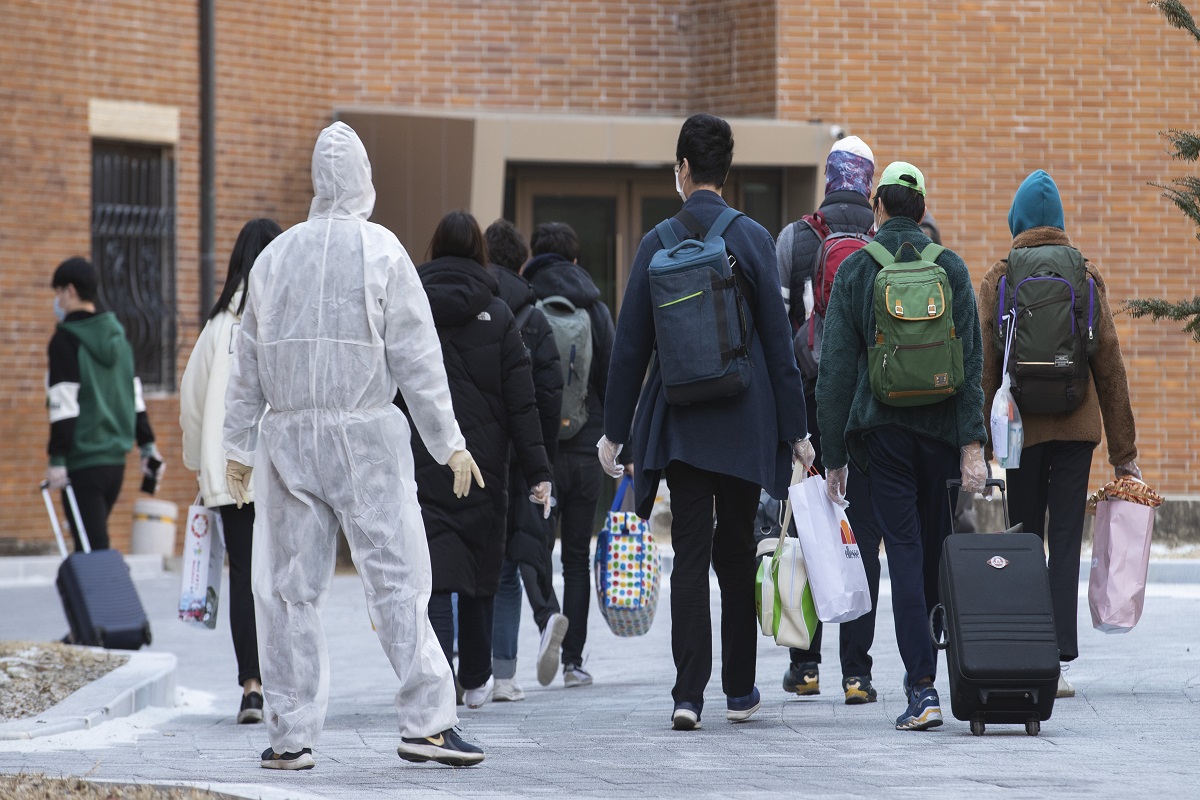Still unexplained
The hunt for the origins of Covid-19 has for the past four years been a tangled web of politics, power struggles, and international finger-pointing.
Of the newly added cases, 17 were connected to bars and clubs in Seoul’s popular night-life district of Itaewon between April 24 and May 6

COVID-19 patients with minor symptoms from Daegu arrive at a special recuperation facility in Chilgok County, South Korea (Photo: IANS)
South Korean health authorities on Friday said that this weekend will be a critical juncture in the country’s efforts to stem the further spread of the COVID-19 following cluster infections in a night-life zone in Seoul.
Twenty-seven new cases of COVID-19 were detected on Thursday, with 22 of them being local infections, bringing the nation’s total number to 11,018, according to the Korea Centers for Disease Control and Prevention (KCDC).
Of the newly added cases, 17 were connected to bars and clubs in Seoul’s popular night-life district of Itaewon between April 24 and May 6, reports Yonhap News Agency citing the KCDC as saying.
Advertisement
As of Friday, a total of 153 people have tested positive in connection with the Itaewon outbreak, including 90 clubgoers and 63 of their family members, co-workers and contacts, indicating that secondary and tertiary infections from the nightclub cases have already emerged, the KCDC said.
On Saturday, President Moon Jae-in urged the public to remain vigilant as the capital has ordered the closure of all clubs and bars after a burst of new cases sparked fears of a second coronavirus wave.
With around 7,200 people estimated to have visited the five establishments, health authorities have warned of a further spike in infections and have asked those who went to any of the venues to get tested.
South Korea, one of the countries that has so far managed to control the coronavirus situation well without resorting to lockdowns, went several days without detection of local transmissions of the COVID-19 virus last week before this new outbreak was detected.
On May 6, the country switched to an “everyday life quarantine” and the normalization of public facilities and other business establishments, under the condition they follow basic sanitation measures.
However, due to the cluster cases, the country has decided to push back the reopening of schools by one week.
(With inputs from agency)
Advertisement